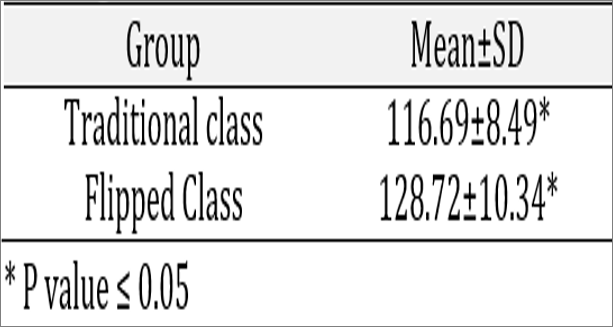Abstract
The aim of the study was to compare the outcomes of the traditional method of teaching to the flipped classes’ method of teaching in the subject of Oral and Maxillofacial Surgery among undergraduate dental students. A total of 150 students pursuing their Bachelor in Dental Surgery were included in this study over a period of two years. 75 students were part of the traditional teaching group and 75 were part of the flipped class group. The final examination marks were collected and statistical analysis was done. The mean marks secured by the students in the traditional teaching group was 116.69±8.49 and for the flipped class group was 128.72±10.34. The results were statistically significant. (p≤0.05). The flipped class method of teaching improved the performance of the students in the exams. The usage of these flipped classes in medical education is advocated.
Full text article
Authors

This work is licensed under a Creative Commons Attribution-NonCommercial-NoDerivatives 4.0 International License.

